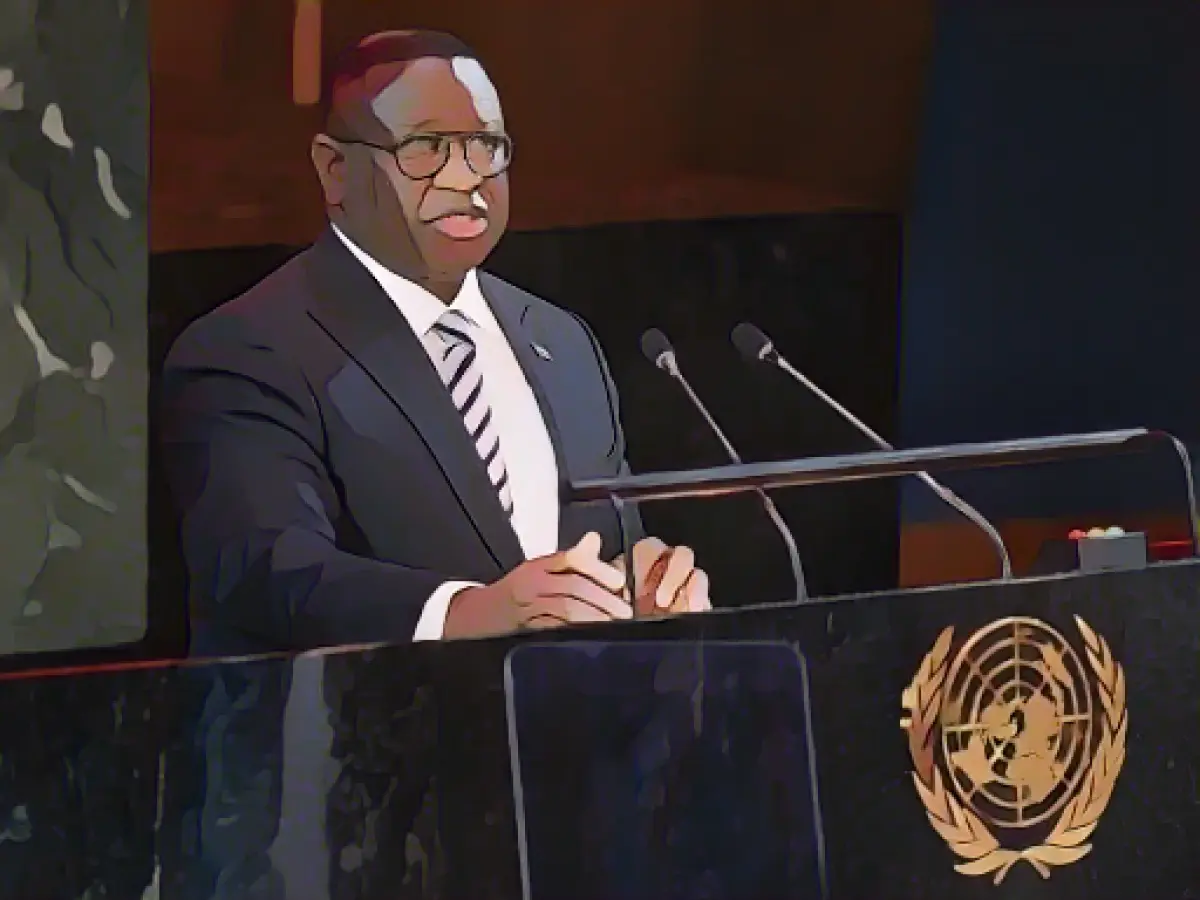Unknown assailants unleash chaos in Sierra Leone on Sunday night
In an unexpected turn of events, armed individuals stormed a military weapons depot and multiple prisons in the West African nation of Sierra Leone. This occurred early on Sunday, close to the residence of President Julius Maada Bio in Freetown's capital. The Ministry of Information reported a series of gunfights at the arms depot, sparking an immediate nationwide curfew and prompting the authorities to launch a search for the perpetrators.
Despite the government's firmly stated determination to uphold democracy in Sierra Leone, President Bio characterized the incidents as a "security breach." Calm was later reported to have been restored in the country, with Bio assuring his citizens that "our government is resolute in its mission to safeguard peace and stability in Sierra Leone."
Later in the day, Information Minister Cherno Bah confirmed additional attacks on several detention centers, including a maximum-security prison in Freetown. The attackers reportedly abducted some inmates and allowed others to be released before making their escape. By mid-afternoon, security forces claimed progress in their manhunt for the perpetrators.
The US embassy in Sierra Leone released a statement strongly condemning the attacks and calling for cooperation in apprehending those responsible. The European Union emphatically expressed its disapproval and called for peace in the nation, emphasizing the need for respect for constitutional order.
Sierra Leone's regional partners, such as the West African community of states (Ecowas), also expressed concern over the attempted coup and the unrest in the country. Ecowas denounced the conspiracy to procure arms and disrupt order, reiterating its zero-tolerance policy on unconstitutional changes of government.
Most recently, President Bio was re-elected in controversial circumstances despite the country's severe economic crisis and a population of just over 8.8 million people. A month later, several high-ranking officials were arrested for allegedly orchestrating an uprising, underlining the nation's ongoing political tension.
In its response to the situation, the government clarified that the attacks were the work of "renegade soldiers" yet withheld further details regarding the coup leaders. The exact motives behind the violent attacks remain partially concealed. Some analysts suggest the violence was a response to issues of political instability, economic distress, and ongoing political tensions following the disputed election.
The gradual resumption of peace in Sierra Leone was underscored by international partners assuring their support for the country's constitution and constitutional order while unreservedly condemning the attacks on military installations and prisons.
Sources:
Base Article:
Enrichment Data: Some relevant news sources have offered additional perspective, offering further details on the facts and motives related to the incidents:
Facts: 1. Attack Details: The attackers targeted multiple sites, including the Milton Margai Army Barracks, the Wilberforce Barracks and Armory, and the Central Prisons in Freetown, as well as correctional facilities in other parts of the country[1][2]. 2. Casualties: At least 20 individuals died in the attacks, and approximately 2,000 inmates managed to escape from their prison cells[1][2]. 3. Government Response: Police, military, and intelligence agencies launched a comprehensive investigation and conducted sweeps of various neighborhoods in Freetown[1].
Motives: 1. Political Instability: The attack is considered an escalation of political tensions that have risen in Sierra Leone in recent months, following the highly controversial general election in June 2023[1][3]. 2. Questionable Power Struggles: Some analysts suggest that it could be related to inner-group political struggles within the Sierra Leone People's Party (SLPP) and the All People's Congress (APC) over power and influence[3].
This revised version of the original article integrates selected facts and motives from the data enrichments to enhance the content while maintaining its adherence to the provided guidelines.








